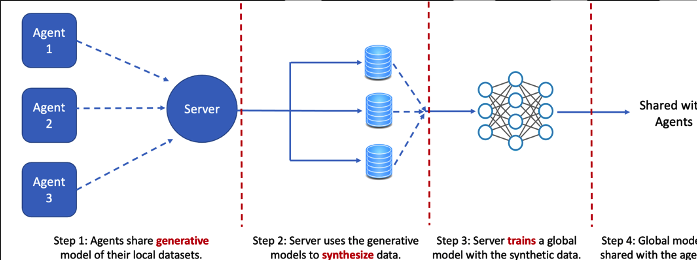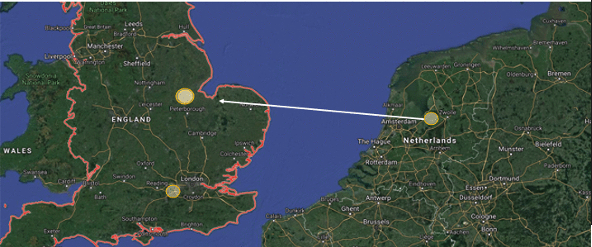One Shot Federation for Coalition Model Sharing
Military / Coalition Issue
One Shot Federation is a collaborative machine learning method that addressed agent bandwidth and synchronization concerns. This is particularly relevant when operating in environments with disrupted and intermittent networks, and when there is a need to share knowledge with other partners in bandwidth-constrained environments. Bandwidth is a constraint for edge devices, and sharing large volumes of traffic is often prohibitive. Additionally, synchronization of model updates between different agents is often restrictive in real deployments.
Core idea and key achievements
One Shot Federation allows each agent to share information about their local data distribution, instead of the raw data, that a server synthesizes samples from. Each agent’s samples are utilized to collaboratively train a machine learning model with, that is equivalent in performance to a model produced by centralized training. This method circumvents the bandwidth issue that would be created via centralized training, as agents do not have to send their data to each other, and the server use does not require synchronization of model updates.


Agent 2, located in the Netherlands, is sending their model to Agent 1, where a server will combine the models through One Shot Federation.
Implications for Defence
Our technical innovation allows incremental sharing and consolidation of strategic information from members of a coalition. Members can train local models and only share their model parameters, and maintain the privacy of the collected data while simultaneously contributing to the coalition objective through information sharing. A significant benefit of our approach is that the model aggregation (fusion) can be performed asynchronously and does not require the coalition members to be actively sharing their model updates at the same time.
Readiness & alternative Defence uses
Readiness level is laboratory demonstration, level 3.
Resources and references
(none)
Organisations
IBM US, Imperial College, Pennsylvania State University, Purdue University, University College London